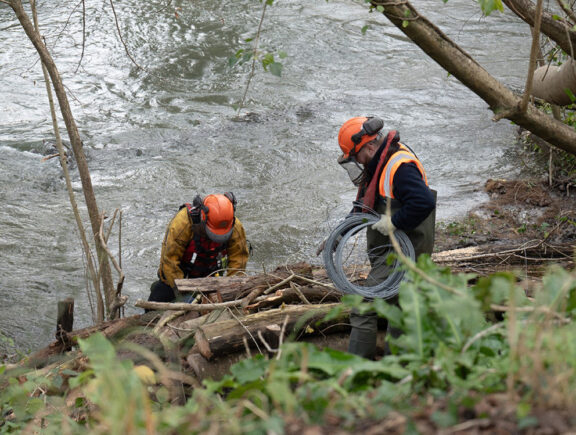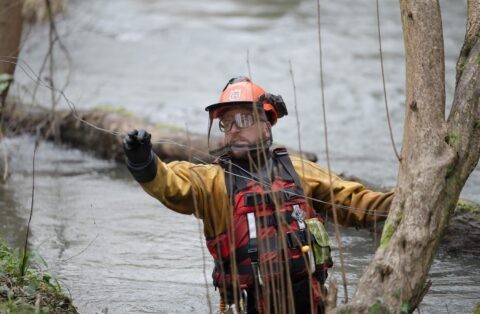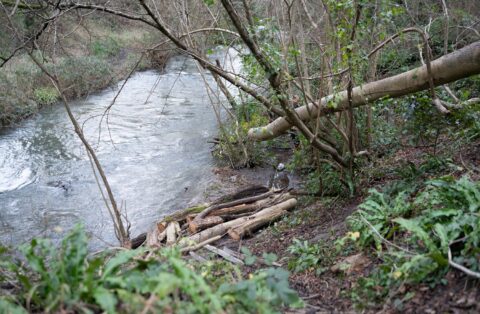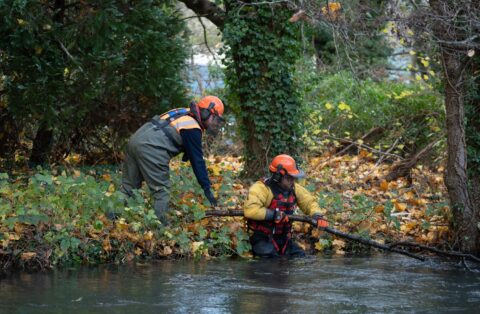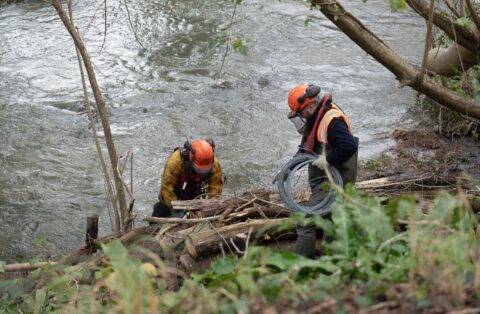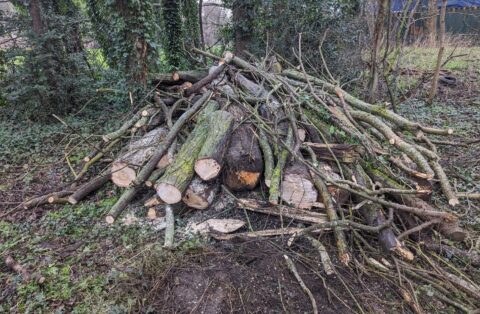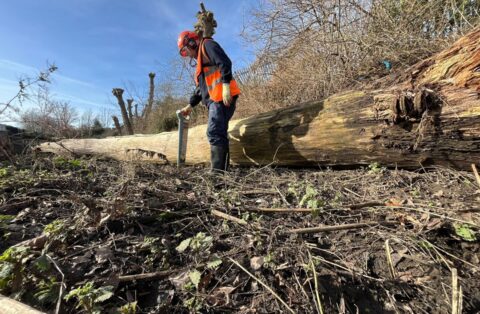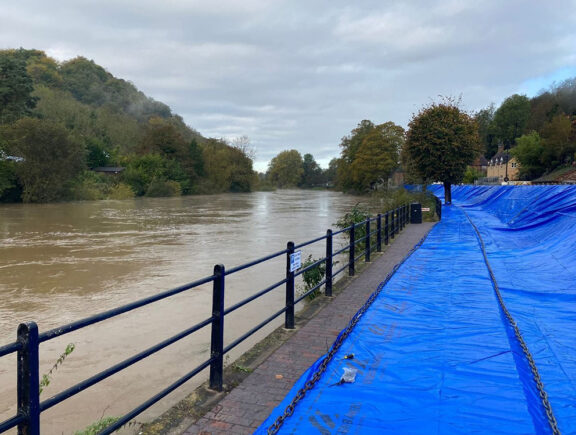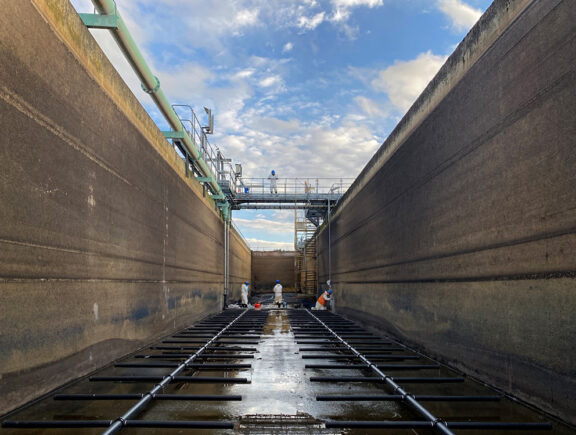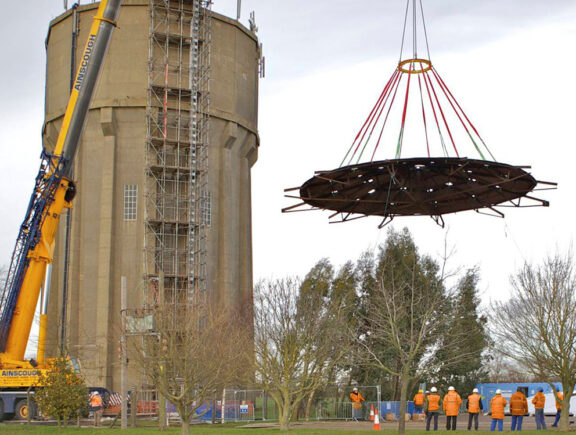IStonbury works with several organisations including the Environment Agency, Natural Resources Wales, and various wildlife and rivers trusts to manage river channels and riparian habitats to achieve healthier natural environments.
The team liaise with specialist ecologists in all programmes that may result in disturbance of protected species and their habitats. Toolbox Talks are provided to raise awareness of specific protected species and associated risks such as invasive weeds and working in and around water.
Riverine corridor creation
Most UK rivers have been modified and contain various in-river structures that create barriers to fish migration and significantly reduce habitat connectivity. Stonbury’s work to remove redundant barriers such as weirs and install fish and eel passes where necessary reconnects riverine habitats.
Landscape enhancement
Stonbury’s programmes enhance blue and green spaces within urban and rural areas to create healthy, resilient ecological networks. Examples include:
- Encouraging clients to conduct mowing regimes that promote biodiversity
- Flood plain creation for natural flood management (NFM)
- Hedgerow management such as laying, trimming and planting to maintain ‘nature highways’ and contain livestock and flood water
- Tree planting for NFM
- Wetland marginal planting on riverbanks, ponds and reedbeds
- Tree management, e.g. canopy reduction
- Pond and wetland creation scrape creation
- Managing invasive species and overgrown weeds to restore species diversity
- Re-use of natural materials from maintenance works to create habitat piles
River Restoration
Re-naturalising rivers by reprofiling artificially-straightened channels restores rivers to natural morphologies and flow dynamics. These changes increase flood and drought resilience, improve water quality and provide a thriving environment for biodiversity.
In-channel modifications
Natural flood management such as in-channel modifications improve flow diversity to vary sediment distribution to encourage a diverse spawning habitat for fish populations. Where possible, modifications are built from locally-sourced natural materials such as recycled tree branches from clearances. Examples include the creation of:
- Riffles to create shallow gravel areas for resting and spawning
- Groynes to create flow diversity and collect debris and silt
- Brushwood faggots to encourage silt build-up and vegetation to protect riverbanks
- Deflectors to create natural scour and distribution of sediment for a varied riverbed
INNS Control
Invasive non-native species (INNS) threaten native wildlife communities and harm the environment. Stonbury’s INNS packages assist clients with the removal and control of invasive non-native species (INNS), such as aquatic plants and shellfish, in short-term and annual maintenance programmes.
It is important to Stonbury to recognise these species and increase awareness of them across the company. All teams adhere to strict ‘Stop, Clean, Dry’ bio-security measures when delivering every programme to control the spread of INNS.
